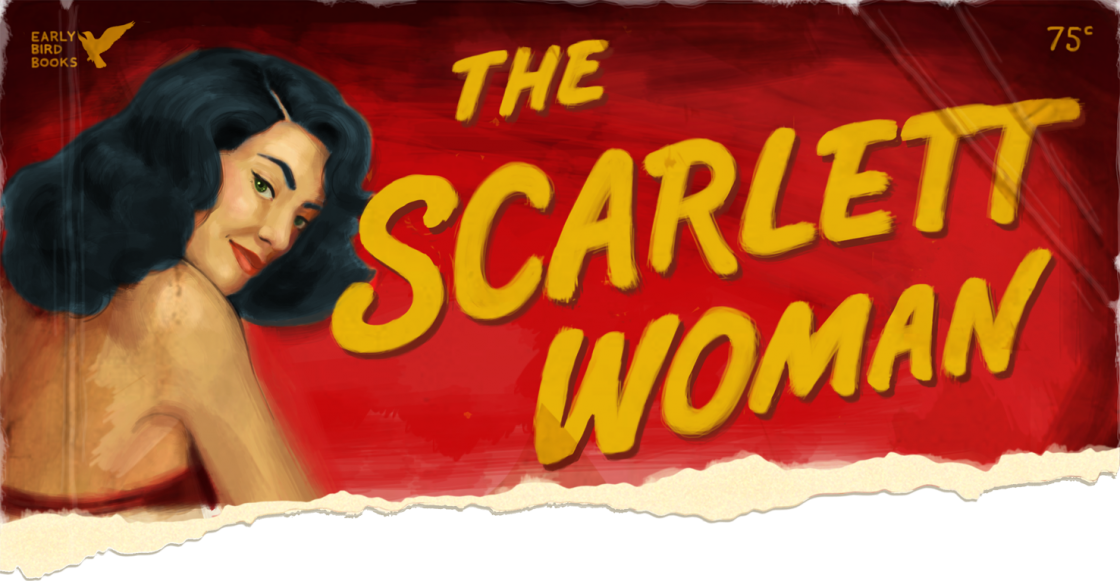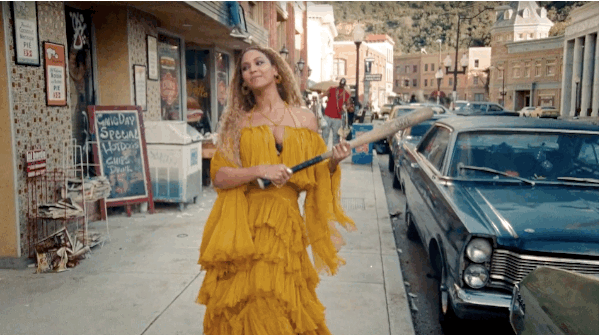
Kevin Allred, whose debut book Ain’t I A Diva: Beyoncé & the Power of Pop Culture Pedagogy, was released in June, has been teaching all things Queen Bey since 2010 in his university class Politicising Beyoncé. Here he speaks about The Lion King star’s politics, her Netflix doco Homecoming, Taylor Swift, and examining Beyoncé’s work through a black feminist lens.
First of all, why is a white man writing about Beyoncé?
I talk about my identity [as a white gay man growing up in a religious household] throughout the book. I’m always trying to be aware of it, whether through teaching or writing. I tried to come to a balance of leaving all these sources for people to kind of pick up and read with a little bit of analysis at the same time so it’s not just me shoving down everyone’s throat a perspective of Beyoncé, so that’s how I negotiated my whole identity in the mix.
Many people think Beyoncé became “political” with the release of “Formation” and Lemonade, but can you explain how she was “subtly politicizing” herself, as you write in the book, and her work long before that?
One of the things I wanted to do with the book is give an overall reading of Lemonade in one chapter and show how pieces of that were present earlier. Whether Beyoncé was trying to be super intentional with it or not, I think it’s part of her artistic process, you can now look back and see little pieces that come together in this now epic, iconic visual album, completely cohesive in the way she presented Lemonade to the world. That’s how I was teaching [Beyoncé’s work in my class] before—Lemonade came out, that makes it possible to see those other pieces now that we have Lemonade to use as a, like a key to the map. Now that you have the key you can see the little pieces in the other places, too.
Why do you omit Beyoncé’s first album, Dangerously in Love, from the book?
It’s not because I don’t like the songs or the music, but for me, I think she comes into her own as a creative director with B-Day… I wanted to make a claim as her as a creator, her as an artist, whereas with Dangerously in Love it felt more like a piecemeal album that she didn’t have much control over as producer, director… That’s why we just look at those [albums] from 2006 onward [in the book].
Beyoncé’s 2018 performance at Coachella and the recent Netflix documentary chronicling it, Homecoming, incorporate the big band, stepping and, indeed, homecoming rituals of HBCUs (Historically Black Colleges and Universities). Beyoncé says in the doco that she missed out on uni but that Destiny’s Child was her college experience. The introduction to your book is entitled “Schoolin’ Life”. So how has Beyoncé incorporated her life experiences and education into her career and Homecoming specifically?
Homecoming is this huge culmination. I was always really taken with that song “Schoolin’ Life”, the bonus track from the 4 album. She says “Who needs a degree when you’re schoolin’ life?” as part of the chorus; it blends experience with what we’d consider the academic. Just because you went to school doesn’t mean you know more, and if you didn’t, there’s no correlation.. With Homecoming she brought it full circle. She’s celebrating HBCU culture but she’s also dropping these references throughout, all these different writers: Audre Lorde, Alice Walker, a few of the people that I mention in the book, too, which was cool for me to see… because that’s what I was always intending to do with the class and now she’s taken this over and she’s going to show us herself.
Homecoming follows a theme of Beyoncé infiltrating traditionally white spaces—the Super Bowl, the CMAs, the Louvre, Coachella and arguably Netflix itself—with her increasingly politicised artistry. Can you speak a bit about that?
I think she’s had a long-term strategy. Artists can come out and be very political right off the bat but it might mean that they sacrifice radio play or notoriety… I think Beyoncé knew that so she kept a lot of stuff hidden under the layers. So when she gets to the point of being able to go to the Super Bowl styled after the Black Panthers she has this huge platform that no other artist has. Now is the time to drop these little bombs. She might lose some followers or sacrifice some people buying her music but that’s not going to affect her in the long run anymore. I don’t think it’s that Beyoncé wasn’t thinking about [being political in the beginning of her career], it’s that she wanted to achieve that level [of fame] so that she could reach even more people because people can be turned off by those initial politics. Which in itself is a form of education: to piss [people] off and get them to say, now I’m not going to listen to Beyoncé. It draws out these questions of why are you mad that she did this? It gets into these real issues of racism that still haven’t been dealt with. I’m into calling her an educator now.
What do you think about Taylor Swift coming out with a similar strategy with her “You Need to Calm Down” video and encouraging people to vote last year after receiving criticism for being “apolitical”during the 2016 U.S. presidential election?
I think Taylor Swift has copied Beyoncé in every strategy for a long time! [laughs] … She’s talking about politics now but I don’t think she’s doing it in a smart way… It feels like Beyoncé starts the trend and Taylor comes to the same conclusion later and often gets a lot of credit for it whereas Beyoncé doesn’t. That replays the race issues within feminist movements [that I discuss in his book.]
This brings us to the “wine pairing” part of the interview. I’m going to say a Beyoncé song, and you’re going to offer the black feminist analysis that goes with it. “Crazy in Love”
This one’s tough ’cause it’s from the album that I don’t discuss [in the book]! I would pair that with something to do with love, like Zora Neale Hurston’s Their Eyes Were Watching God.
“Single Ladies”
Janet Mock’s Redefining Realness.
“Diva”
We go straight to the title [of the book]. I pair “Diva” with the “Ain’t I a Woman” speech that Sojourner Truth is known for but actually [it] is not likely to have happened with those words. It’s kind of a reimagining of the speech. I love to think about the idea of a diva and the way Beyoncé constructs that song next to Sojourner Truth being a public speaker and activist.
“Run the World (Girls)”
An article Cathy Cohen wrote called “Punks, Bulldaggers and Welfare Queens: The Radical Potential of Queer Politics”. It’s about coalitions coming together and that song—or at least the video—emphasises that. Also “We Don’t Need Another Hero”. The video always reminds me of Tina Turner in Mad Max [Beyond Thunderdome].
“***Flawless”
Well obviously Beyoncé paired Chimamanda Ngozie Adiche’s [“We Should All Be Feminists” with the song]. It’s interesting to watch the speech that she gives and read the essay and see how Beyoncé’s remixed it. What does she leave out, what does she take and rearrange? That one Beyoncé’s done for us.
“7/11”
I like to think of [7/11] as a celebration of dancing. Alice Walker has a book of poetry called Hard Times Require Furious Dancing. Her prologue to that has some really important stuff to relate to “7/11”.
“Formation”
There’s so much. One interesting one is Ntozake Shange’s For Colored Girls Who Have Considered Suicide/When the Rainbow is Enuf, which is a choreopoem so it’s a song, a play, choreography. I think Beyoncé brings all those elements to “Formation” and the rest of Lemonade which are interesting to look at next to that piece of work.
“Freedom”
There’s a novel by Sherley Anne Williams called Dessa Rose which had kind of disappeared from literature cannons but has been revived in the last few years. It gets into the idea of what freedom means and I think put next to Beyoncé singing “Freedom” creates some interesting conversations.
“Apeshit”
I have to go with June Jordan, her essay [collection] Civil Wars. She talks about being polite and civility and I think that pairs well with the idea of being in the Louvre and not disrespecting the art [per] se but challenging the idea of respectability.
This interview has been lightly edited for clarity and length.
Elsewhere: [HuffPost] The Unbearable White Womanhood of Taylor Swift.










